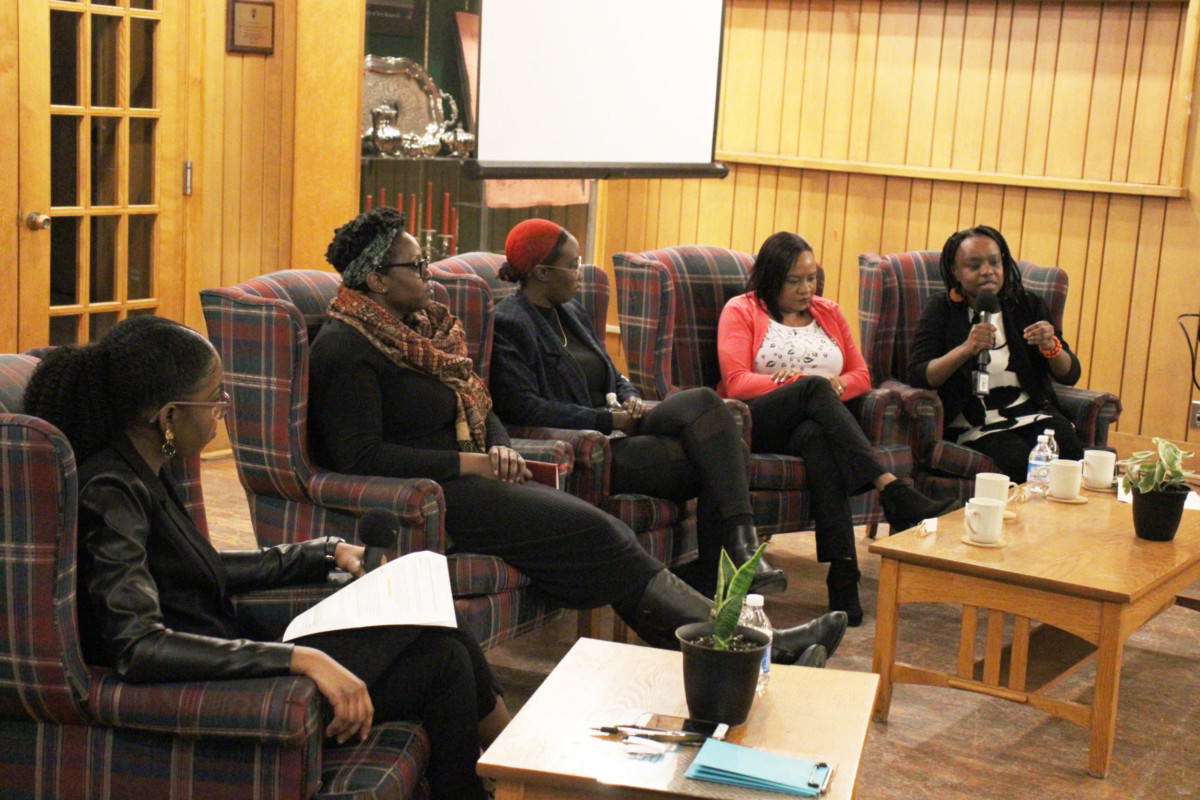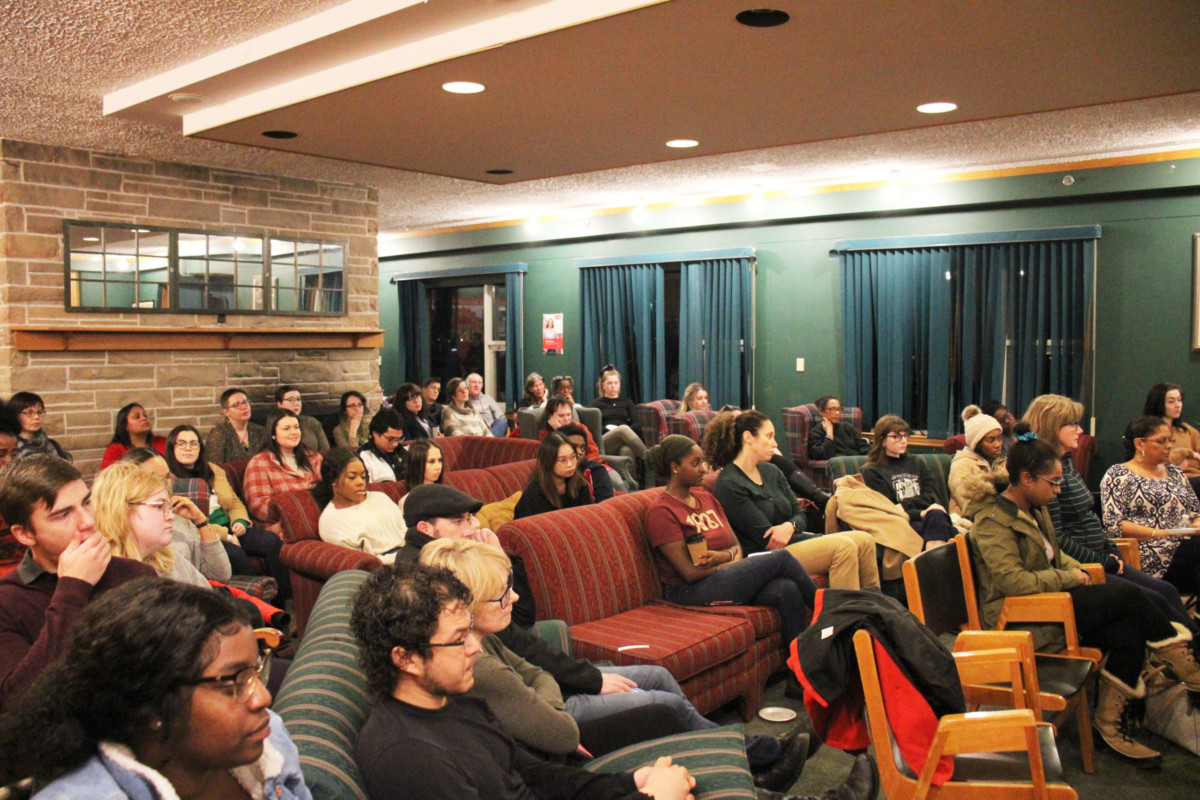
St. Thomas University fourth-year student Adriel Miller said she saw a gap in Black female representation in Fredericton. She said the city has a small Black community.
That’s why the human rights and criminology student organized the Couch, Coffee & Convos: Black Women Taking Up Space. The event was part of a series of events organized by STU’s Black Students’ Association for Black History Month. Miller said she’d had envisioned organizing an event like this one since high school.
“I always thought to myself, I really want to do some sort of space that’s exclusively – not exclusively meaning that no one else can come – but it’s exclusively by a Black woman for Black women. It’s creating a space that you can have open conversations about issues affecting the Black female community,” she said.
Miller is part of the executive team at the University Women’s Centre. As the only Black woman on the executive team, Miller said she thought it would be good to have an event that is for Black women and diversify the issues the Women’s Centre focuses on.
The panelists included UNB professors Funké Aladejebi and Alicia Noreiga, Joanne Owuor, a second-year PhD student at UNB and social worker and community advocate and STU third-year criminology student Felomena Deogratsias.

Each panelist talked about their experiences being a Black woman in Canada. Topics included dealing with anti-Blackness, blatant racism, finding jobs in Fredericton and struggling to “fit in” at local communities as Black female immigrants.
“You tend to put your identity to the side because you want to fit in even though you’re already standing out as a Black person,” said Noreiga.
“I do not think that students, faculties and the people of Fredericton are aware of that. What is lacking is that knowledge and information that only Black people can share.”
Aladejebi talked about her experiences with racism throughout her time in Canada. She said that people are taught to believe certain, subtler forms of discrimination in Canada are not racist because we are used to seeing broader forms of racial discrimination, such as police brutality against Black men, particularly in the United States.
“When you are walking in Winners and someone is staring at you and their children are staring at you, that is an aggressive, very overt way of understanding your difference. I don’t think there is anything subtle about that,” she said.
STU student and panelist Deogratsias spoke about her struggles to find a job as a visible minority during her first year in Fredericton. She said she would dress nice and behave professionally during interviews but would often worry about how “ethnic” her name sounds.
“If people don’t understand [they would ask] what does this girl look like? Is she Spanish, Latin [American], Black, who is she? There is this idea that no matter what, I’m ethnic. Even sometimes when I go to interviews, they’re looking for who’s showing up, and I’m here … It was really difficult for me to accept that I couldn’t get a job.”
Deogratsias said she felt frustrated and constantly asked herself why she could not find a job, despite applying everywhere. Sometimes, she would get interviews but no follow-up calls. Sometimes, she would not get an interview at all.
“That is an example of what it is like to be a visible minority in Fredericton and still feel empowered about your credentials and the things you know that are valuable to your community,” she said.
STU student Miller said she hopes to continue the conversation and hopefully, in the near future, have Fredericton build a stronger community for Black people.
“It’s been a process wanting to have a place where Black women can release, converse and connect and identify.”
